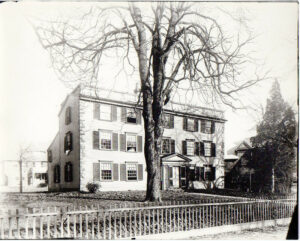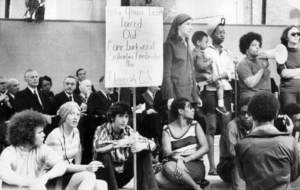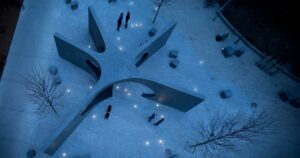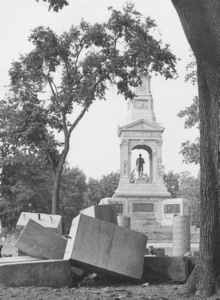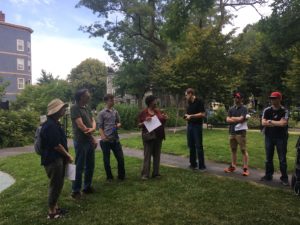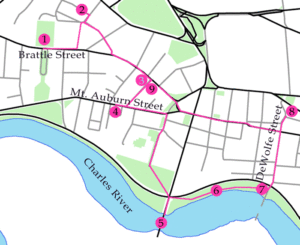William Henry Lewis (1868-1949), Lawyer, Athlete, Public Servant
By Daphne Abeel, 2002
William Henry Lewis, a graduate of Amherst College and Harvard Law School, was an outstanding athlete and an orator for his college class (1892). He carried on a successful law practice in Boston, served on the Cambridge City Council, was elected to the Massachusetts legislature, and was appointed assistant attorney general of the United States. He was also Black.
Lewis was born in Berkeley, Virginia. He attended the local schools, and after graduating from Virginia State College, a land grant college for Blacks, he worked as an errand boy for the U.S. Congress for a year, saved his money, and applied to Amherst. There he distinguished himself as a student and as center on the football team. Upon graduation, he went to Harvard Law School and passed the Massachusetts Bar in 1895, a few months after his graduation.
He continued to advise the Harvard football team through his law school days, and was named to Walter Camp’s all-time All-American team, the first Black to be so honored. He also experienced an incident of rank racial discrimination when he tried to have his hair cut in a Cambridge barber shop. When the barber refused to serve a Black man, Lewis contemplated filing a lawsuit; later, he took even more effective action.
The Cambridge and Boston press followed the event closely. On Friday, March 26, 1893, the Boston Daily Globe quoted the barber as saying, “I’m sorry the event happened, but I cannot do anything about it now. I think it will all blow over in a few days.”
Further the Globe described the reaction of Lewis’s teachers at the law school. “The legal lights at Harvard Law School…while they sympathize with Lewis generally, seem to think that such an action [suit against the barber] would result in nothing, and probably Lewis will give up his intention of a suit.”
Lewis did not give up. Already interested in a career in politics, he had friends in the Massachusetts legislature. He caused a bill to be filed that included barber shops under a special nondiscriminatory clause which also covered skating rinks. The bill passed.
He joined the Republican Party and was elected to the Cambridge Common Council (later the Cambridge City Council), where he served from 1899 to 1901.
During this time, he married Elizabeth Baker of Cambridge, a student at Wellesley College. He was elected to the Massachusetts legislature for one term; but lost the second time around when white southern Democrats from Georgia, North Carolina, and Alabama campaigned to block his re-election.
Nevertheless, his gifts as a litigator were making him known to prominent critics such as Chief Justice Oliver Wendell Holmes, who complimented Lewis on one of his arguments before the Massachusetts Supreme Court. Although Lewis was no revolutionary, he formed friendships and relationships with other Black leaders of his time, including W.E.B. Du Bois and Booker T. Washington.
Washington helped to bring Lewis to the attention of President Theodore Roosevelt, who appointed him assistant U.S. attorney in Boston. In 1911, President William Howard Taft elevated him to assistant attorney general of the United States.
President Woodrow Wilson did not reappoint him, and in 1912 Lewis returned to Boston, carrying on a successful career as an attorney and a popular speaker. Lewis had his law offices in Boston, but he settled at 226 Upland Road in Cambridge, where he lived for many years.
Lewis died on January 1, 1949. According to the Boston Herald report on January 5, hundreds attended his funeral, which was held at St. Cecelia’s Church in the Back Bay. Among the mourners were Governor Bradford, Mayor Curley, who had once been his client, and Governor-elect Dever. Lewis is buried in Mount Auburn Cemetery.
Anyone interested in learning more about Lewis should consult the archives of Amherst College as well as a collection of materials at the Cambridge Historical Commission. Information about Lewis and other distinguished black residents of Cambridge may be found in the booklet African American Heritage Trail, which is available for purchase at both the Cambridge Historical Commission and the Cambridge Historical Society.
This article originally appeared in our Winter 2002 Newsletter. You can read other past newsletters here.

